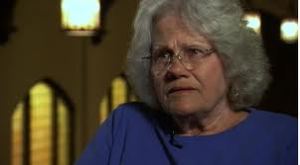“Keep passing the open windows” is the phrase that comes from the John Irving novel The Hotel New Hampshire, published in 1981. It is a catchphrase among the Berry family, the characters whose story is told in the book. It is drawn from a story that the Berry parents tell their children about a street performer called “The King of Mice.” He committed suicide by jumping from a window. “Keep passing the open windows” is the family’s way of telling each other to carry on when the going gets tough. I read the novel in 1983 and saw the feature film version released in 1984. This catchphrase and the sentiment behind it has remained with me over the years, and I have applied it in my own life in “passing the open windows.” However, I understand that while it is easy to tell someone troubled, having a hard time coping with life, joys, and sorrows, to “keep passing the open windows,” promising them things will get better, sadly, not all stories have a happy ending.
One such story is that of the Griffith family in Walnut Creek, California, whose gay son, Bobby, committed suicide in 1983. He was 20 years old. The suicide of a young person, gay or heterosexual, is tragic in its own right, but in this case, his mother, Mary, a staunch Presbyterian, refused to accept him as gay. She put him through psychiatric treatment and prayer with church groups to “cure” him of his homosexuality, threatening to disown him otherwise. His struggle to understand his same-sex attraction and the pressure from his family to overcome these feelings drove him to suicide. She learned the hard way it was her ignorance of what he was experiencing and her inability to question her Church’s intransigent doctrine concerning homosexuality that proved fatal to her son. She realized too late that while it is essential in Christianity to care for her son’s soul, it was equally important to care for him in accepting him for who he was in the here and now. To her credit, she understood, in time, that she was mistaken in what she believed and sought to atone for this by examining her conscience and her understanding of Christianity, becoming an ardent supporter of gay rights and working with the organization Parents Families and Friends of Lesbian and Gays (PFLAG).
The Griffith family’s story is documented in the book Prayers for Bobby: A Mother’s Coming to Terms with the Suicide of Her Gay Son by Leroy F. Aarons in 1995. Their son Bobby was an aspiring writer and kept a diary, documenting his experiences and feelings. The book incorporates Mary Griffith’s experience before and after her son’s suicide and entries from his diary. Their story was made into a movie for television in 2009, Prayers for Bobby, in 2009, featuring Sigourney Weaver as Mary Griffith and Ryan Kelley as her son Bobby. The film is well worth watching, though it tugs at the heartstrings. Their compelling story stresses the importance of suicide prevention for gay youth. Suicide among young gay people is a reality that this movie brings home to the viewer. Gay youth are at higher risk of suicide, according to many surveys. Mary Griffith cannot bring back her son Bobby, but in sharing the story of her family’s tragedy and campaigning for acceptance of gay youth through her involvement with PFLAG, he lives on. PFLAG, founded in 1972, reaches out to families with young gay people, like her son Bobby, who are struggling with their sexual orientation, to help them through the experience and keep them from harming themselves.
This story resonates because her son was only two years younger than me. I was experiencing the same feelings he was at the same time. No one in my family knew I was gay, so there were no efforts to “cure” me of my gayness or threaten to disown me, but I found myself pretty much in the same place as Bobby Griffith. The difference is I am alive, enjoying life with Mika by my side and feeling a little survivor’s guilt. I took to cutting myself during my adolescence. I took an overdose of Ativan, prescribed by the psychiatrist treating me for anxiety, washing it down with a bottle of Napoleon brandy in 1982. I was 21 years old at the time. I woke up very late the next day, fearfully groggy and lying in a pool of vomit. If there are guardian angels, mine must be the most conscientious of the lot! For whatever reason, I survived and persevered, finding myself at this stage of my life, hoping I could make a difference. I can encourage young gay people experiencing the same feelings of pain, self-loathing, and despair I did during my adolescence and early 20s to go on living. Dredging up these memories is hard, but I think I must do so to atone for my own mistakes and, as I said, in hopes of stopping anyone else from going down that road.
Posted by Geoffrey



This is my favorite Irving and the quote came into my mind again just a moment ago (having a time of troubles). That is how I navigated to your page and to be honest, as a non-native speaker, I got the whole meaning of the quote only now through your text. I agree self-acceptance is one of the hardest things for all of us being hetero, homo, bi, trans, whatever (now I know why I liked Jodie Foster more than Rob Lowe in the movie) and society is not much encouraging. I am grateful that I, born in 79, was allowed to raise up in already changed (still not perfect) world. Thank you for the article and your nice picture, both touched me. Btw, to self-acceptance, I would like to add compassion and being grateful – the three of them helping to keep passing the open windows.
Thank you for reading the post and leaving your thoughtful comment and “keep passing the open windows.” 🙂
Very good. The gods have blessed you with wisdom. I shall keep passing the open windows, especially when tempted to jump from them. I know how it feels to be alone and unloved and hopeless. People should help each other, not put other down. Try to understand what people are going through.
I haven’t seen the movie you mentioned, but it sounds just as current today as it was back then. Self-acceptance is what’s different between you and Bobby, I think. Individuals who commit suicide can see absolutely no way out of their misery because they themselves reject who they are. Society is always going to single people out for being different. Each of us has to decide whether or not to let that dictate how we feel about ourselves.
Thank-you for the comment, you are quite correct in that self-acceptance is all important for everyone. It makes me feel better that there are groups like PFLAG to encourage young gay people to accept and be happy with themselves, particularly those born into cultures where gayness is condemned.
Oversimplified!
Period.